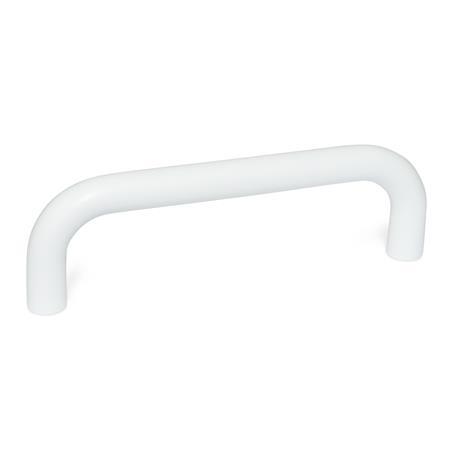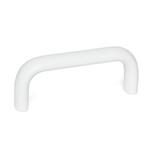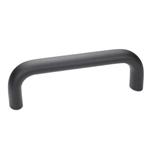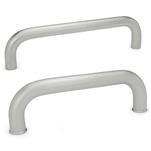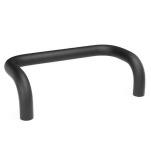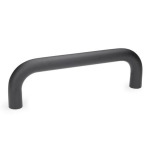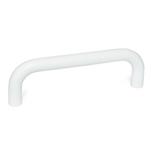Product description
Cabinet U-handles GN 426 are made from a bent aluminum profile and have excellent stability and ergonomic design.
The SMA / WSA versions have a powder coating based on silver ions, which gives them antimicrobial properties. The principle of action has been shown to reduce the contamination of the handle surfaces within 24 hours so that fewer than 1% of bacteria and fewer than 5% of viruses ultimately survive.
Standard parts with antimicrobial plastic coating are primarily used in the health care sector and in public buildings, such as airports, train stations, stadiums, etc.
Specification
AluminumAL
- Powder coated
- White, RAL 9016, antimicrobialWSA

- Black, RAL 9005, antimicrobialSMA

- White, RAL 9016, antimicrobialWSA
RoHS

